Forest floors are often shaded, but that doesn’t mean they’re barren. Many plants thrive in low-light conditions, adding greenery and life to the darkest corners of the woods. These plants have adapted to flourish in dim, moist environments, making them ideal for shady gardens too. Here’s a look at some of the best options for those tricky, shaded spaces.
Ferns (Various Species)
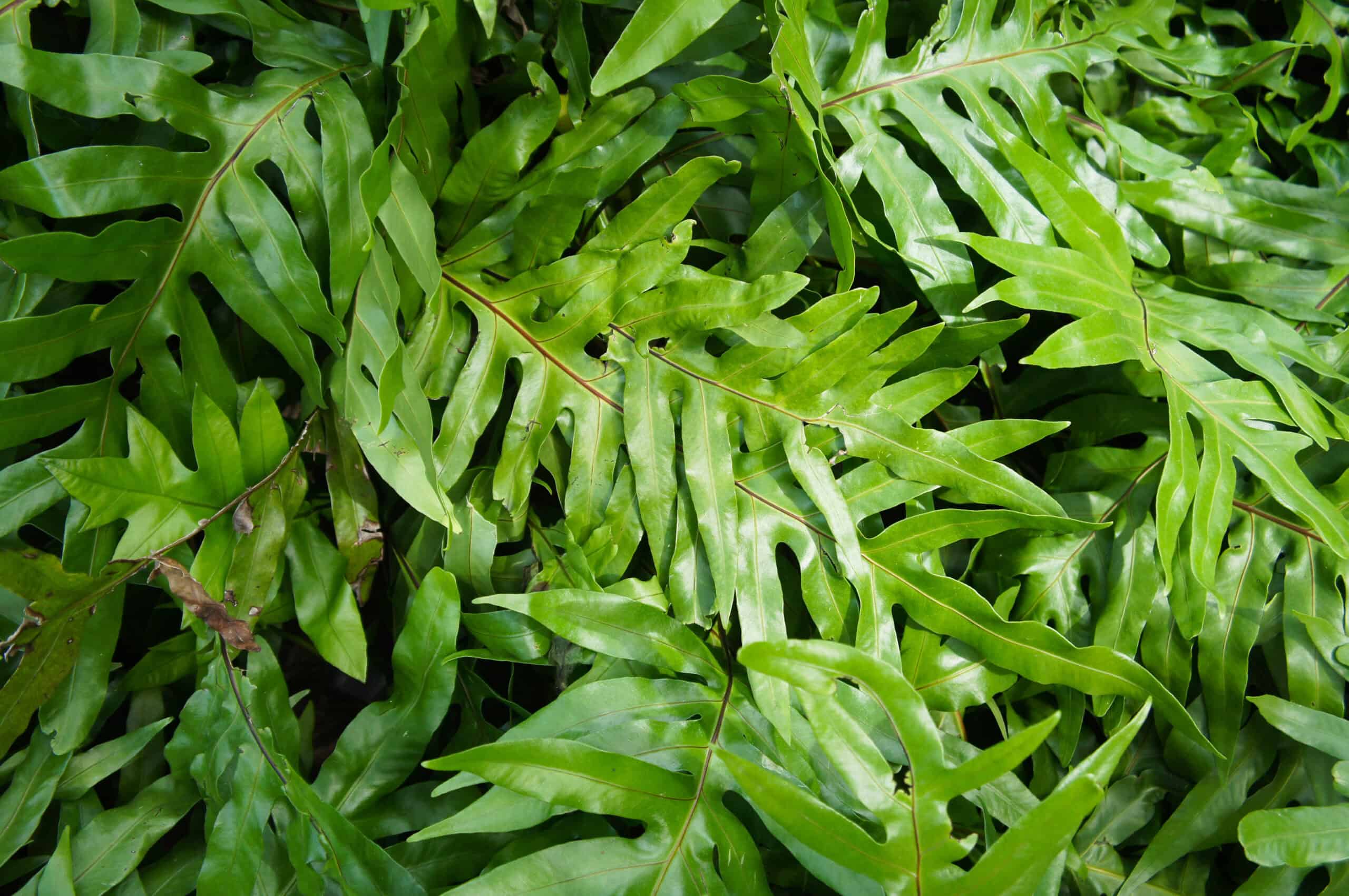
Ferns are masters at thriving in low light. They grow lush and green even under dense tree cover. These plants have delicate, feathery fronds that add texture to shaded areas. Ferns require consistently moist soil to keep their foliage healthy. They also enjoy rich, organic matter in the soil to support growth.
Hostas
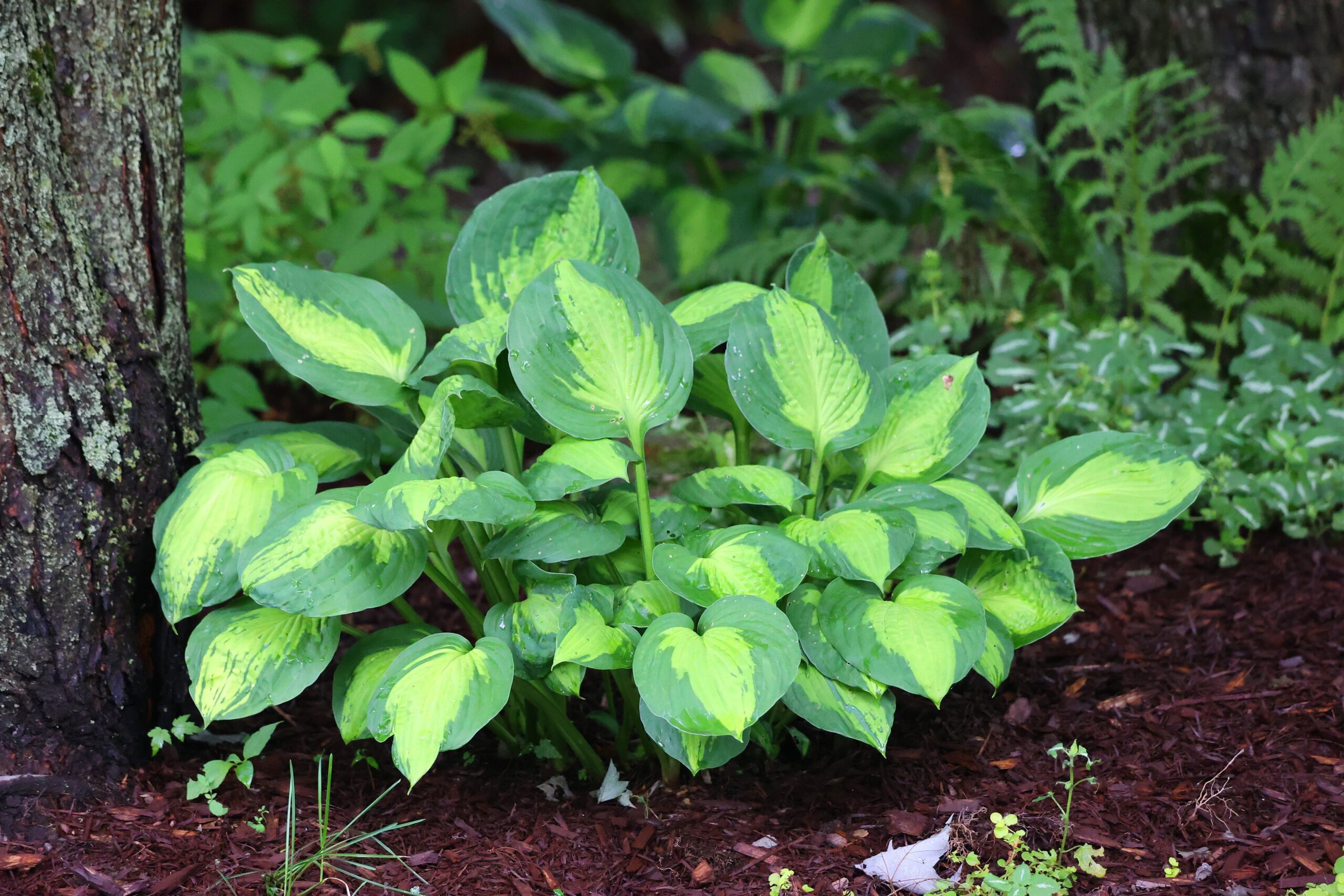
Hostas are a favorite for shady spots due to their large, bold leaves. They come in various shades of green, often with striking variegation. These perennials grow best in moist, well-drained soil. They tolerate deep shade and are known for their durability in low-light areas. Deer may be a concern, as they love nibbling on hosta leaves.
Japanese Forest Grass
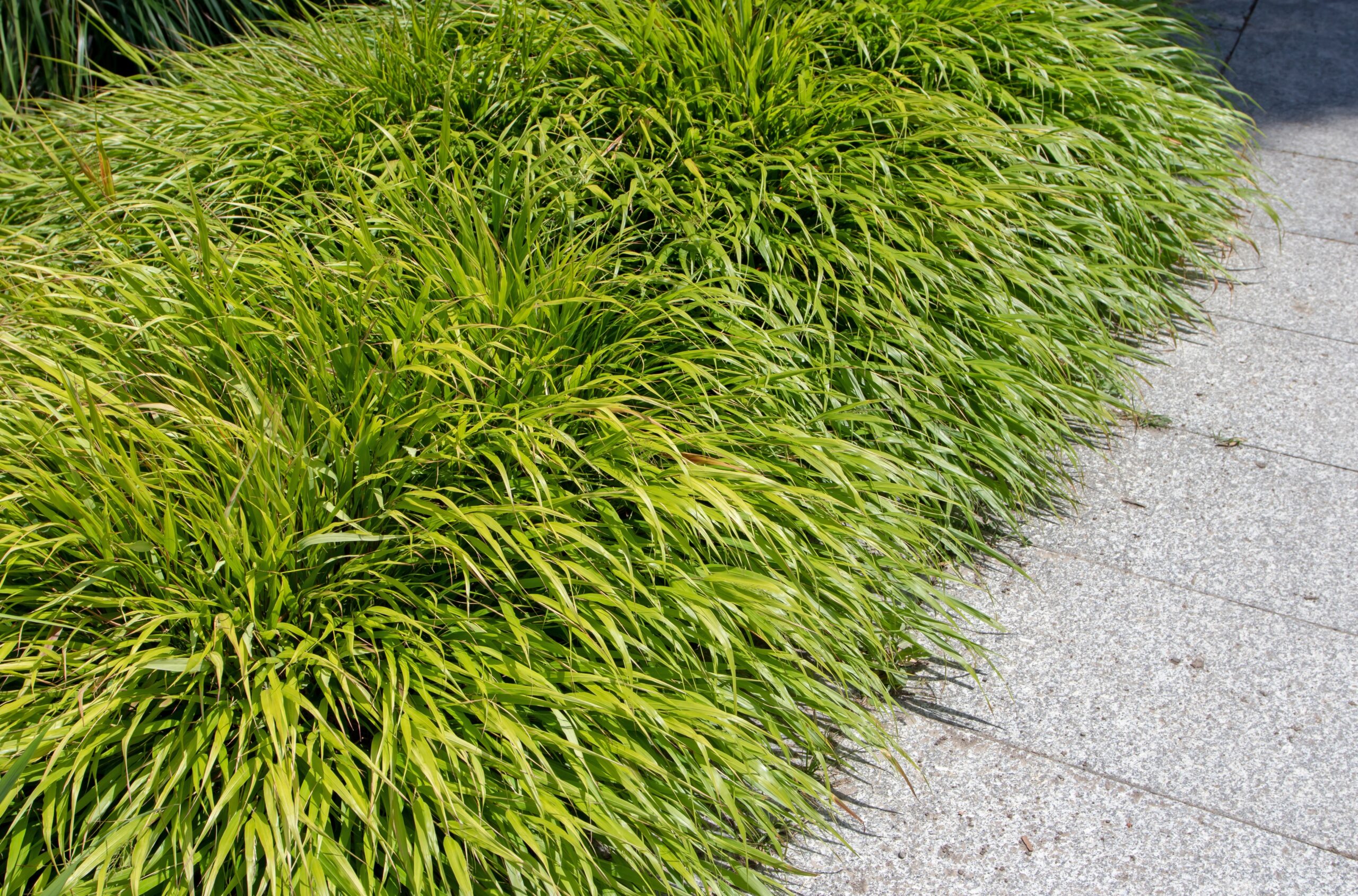
This grass adds a soft, cascading effect to dark corners. Its arching leaves are bright green or gold, bringing light into shaded spaces. Japanese Forest Grass prefers slightly moist soil and does well in partial to full shade. Its slow growth makes it a low-maintenance option for shade gardens.
Solomon’s Seal
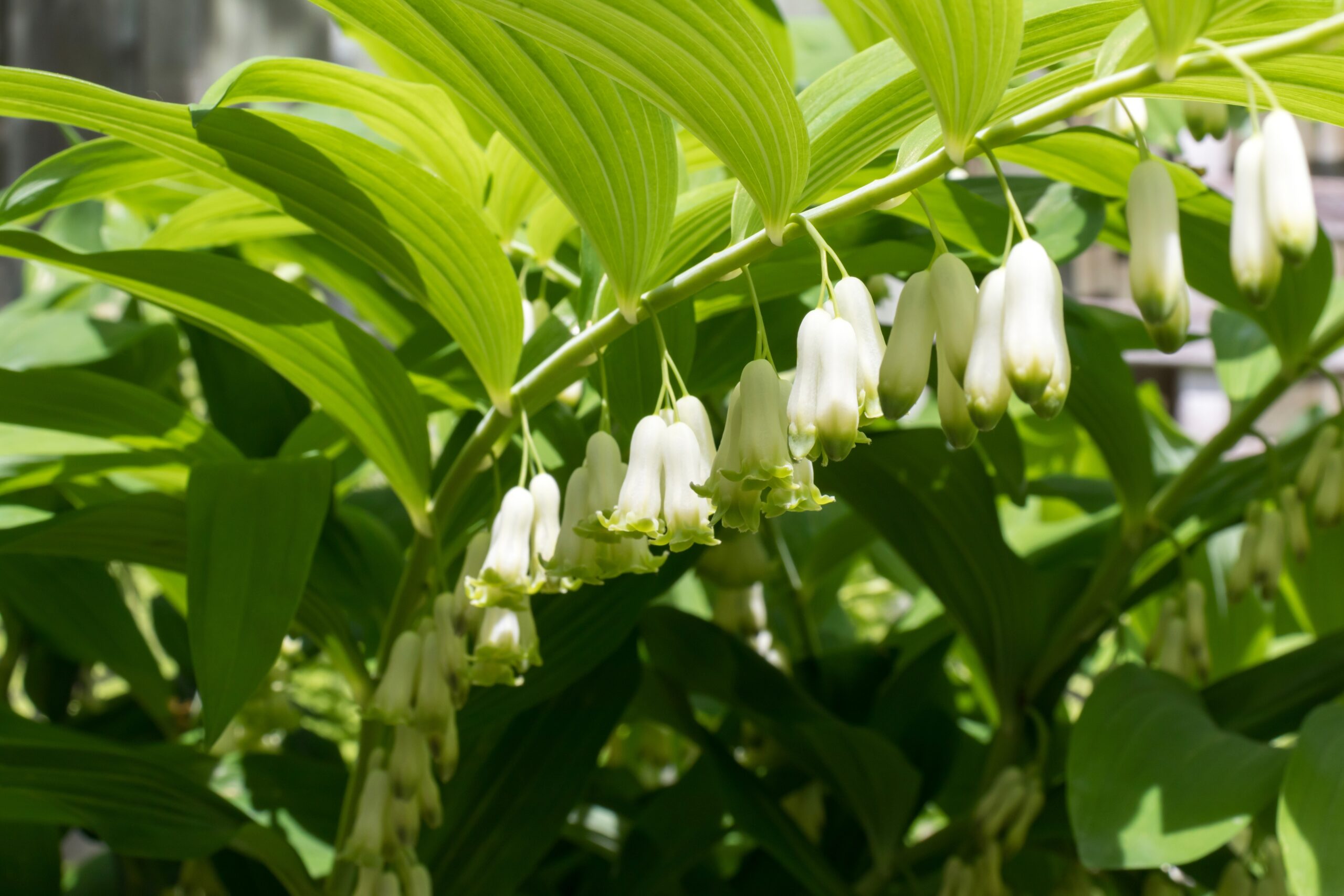
Solomon’s Seal stands out with its arching stems and bell-shaped flowers. The plant blooms in spring, offering delicate white or pale green flowers. It prefers rich, well-drained soil and thrives in full to partial shade. Once established, Solomon’s Seal can spread, making it a great ground cover option.
Foamflower
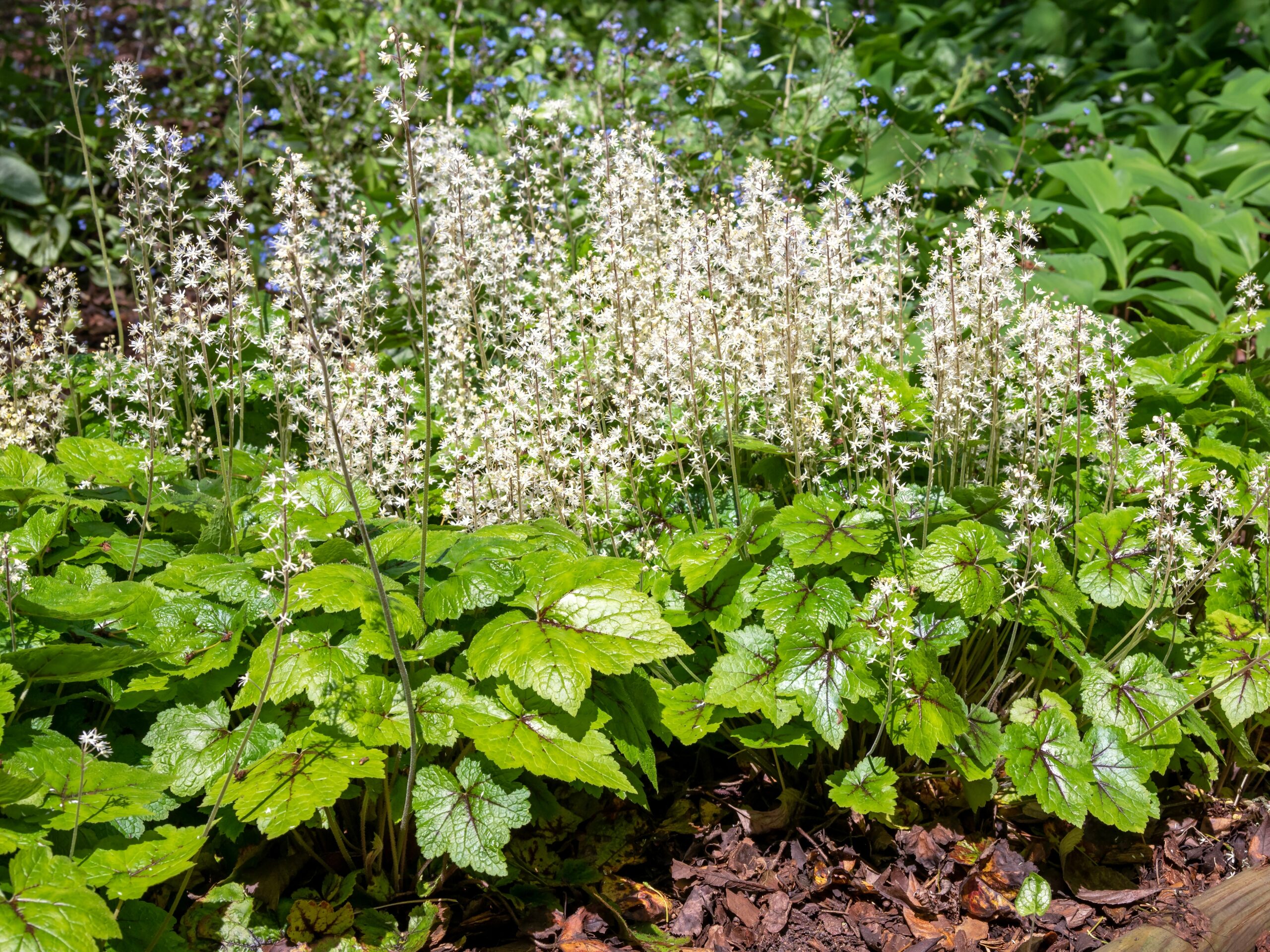
Foamflower is a woodland perennial with heart-shaped leaves and delicate blooms. In spring, it produces spikes of white or pink flowers that look like foam. This plant thrives in moist, shady areas and does well in both dry and damp soils. Its foliage is often mottled, adding interest even when not in bloom.
Lungwort
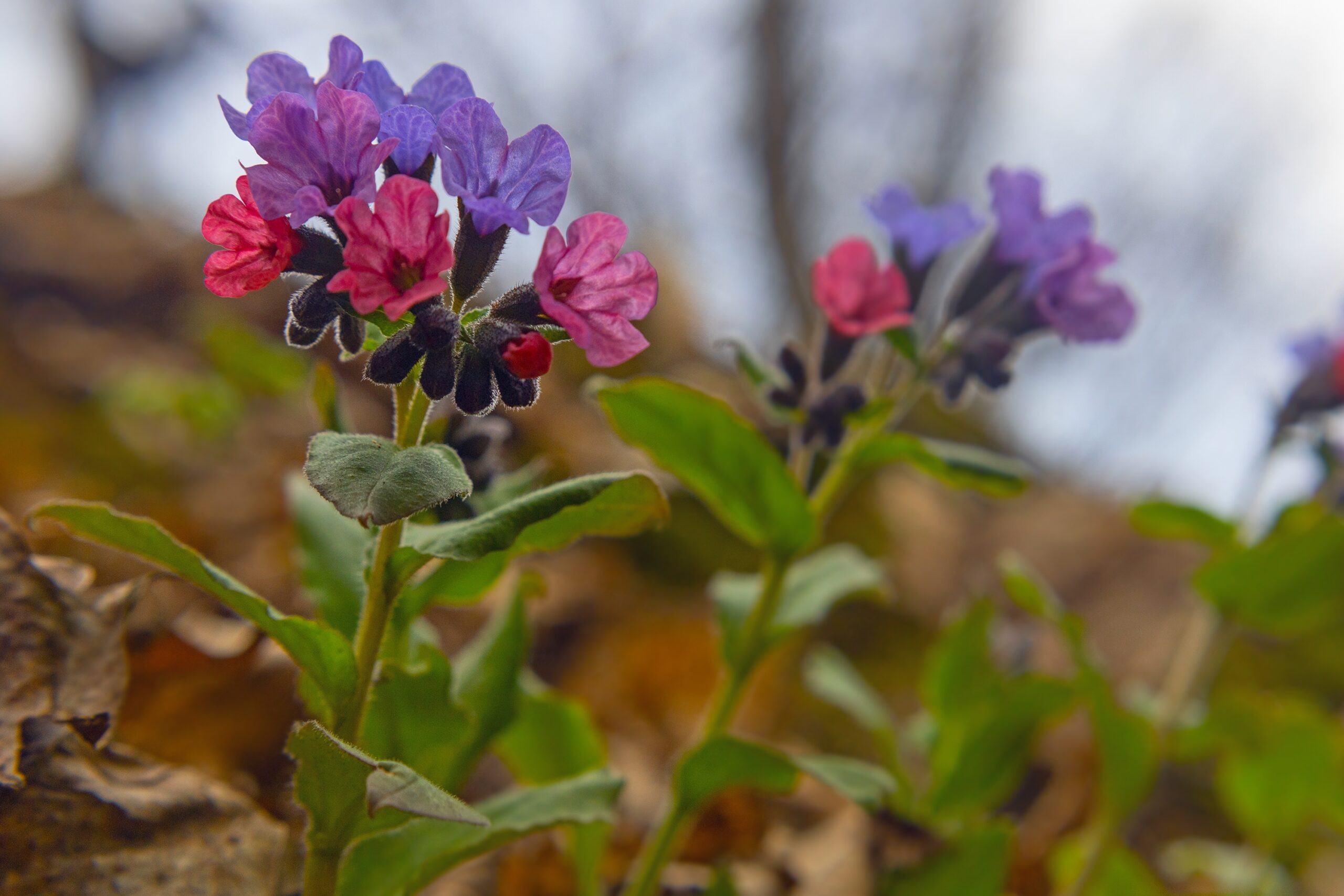
Lungwort adds texture with its spotted or silver leaves. In early spring, it produces clusters of pink, blue, or purple flowers. This plant prefers rich, well-drained soil and thrives in full to partial shade. Lungwort is also drought-tolerant, making it a hardy choice for shaded gardens.
Woodruff
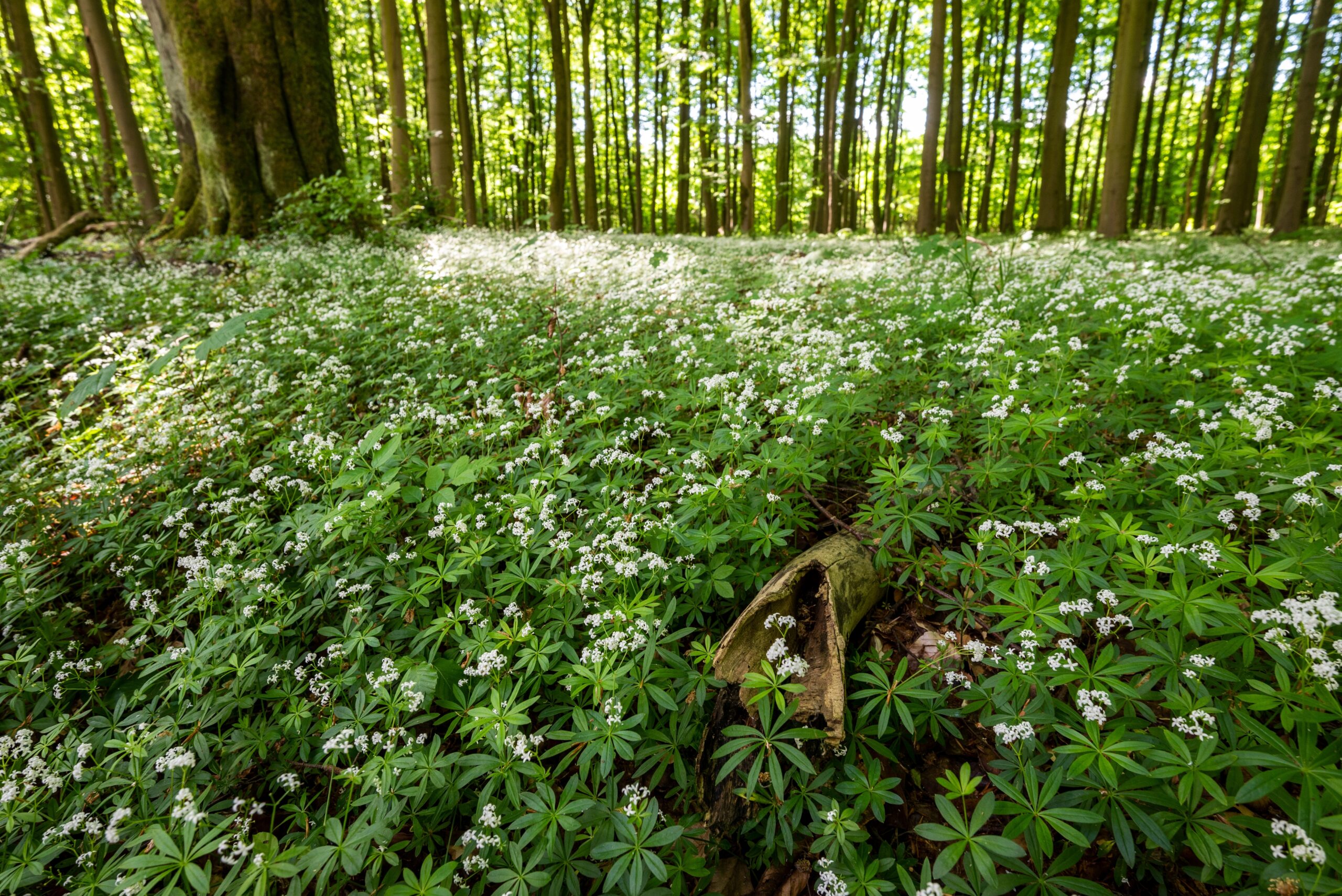
Woodruff is a low-growing ground cover known for its delicate white flowers and sweet fragrance. It thrives in deep shade and spreads quickly, forming a lush green carpet. This plant prefers well-drained soil but can handle a variety of conditions. Woodruff is often used as a natural weed suppressant in shaded areas.
Bugleweed
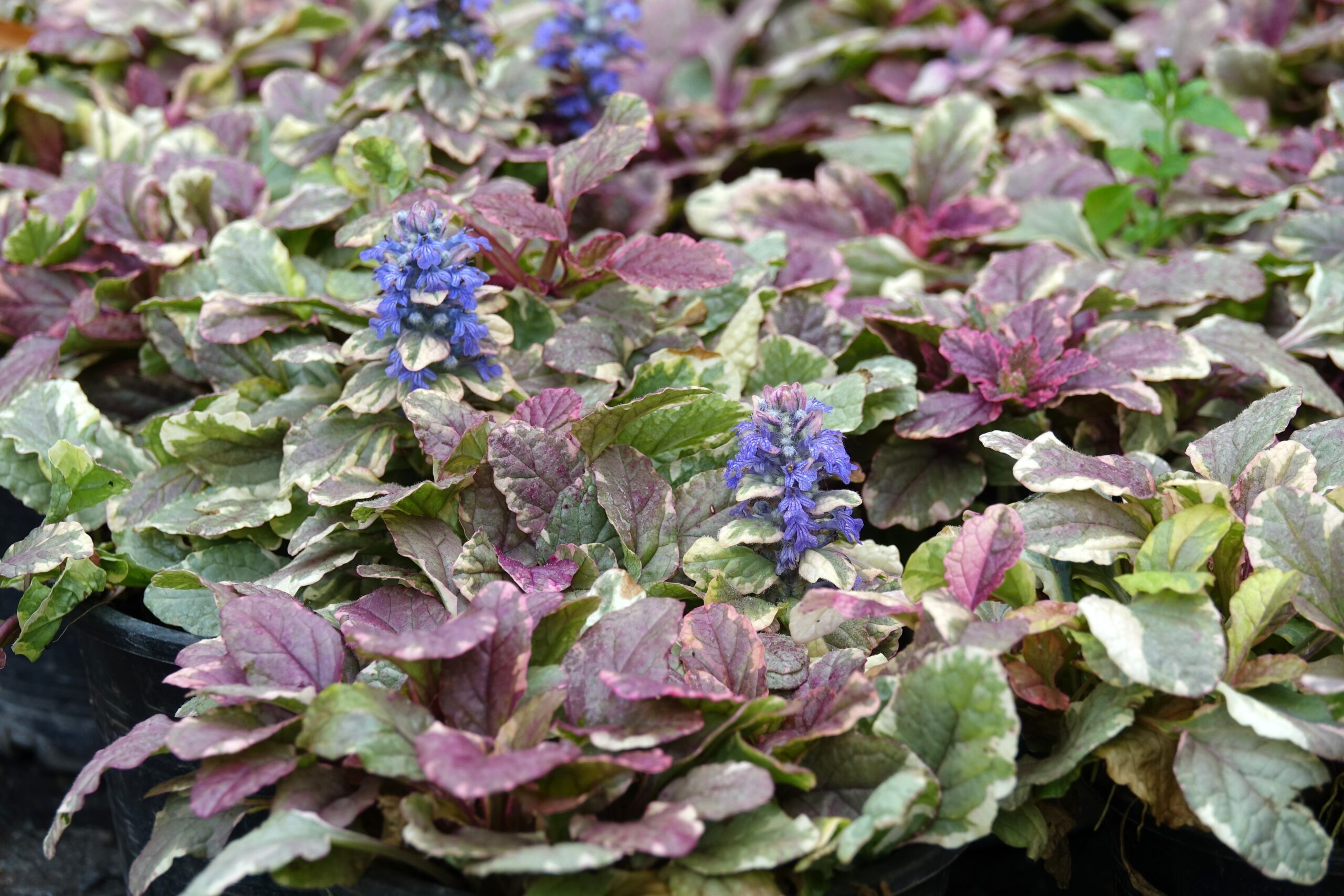
Bugleweed is a tough, fast-growing ground cover perfect for shady spots. It produces deep blue or purple flower spikes in spring. The plant prefers moist, well-drained soil but can tolerate occasional drought. Bugleweed also spreads quickly, making it ideal for filling large shaded areas.
Bleeding Heart
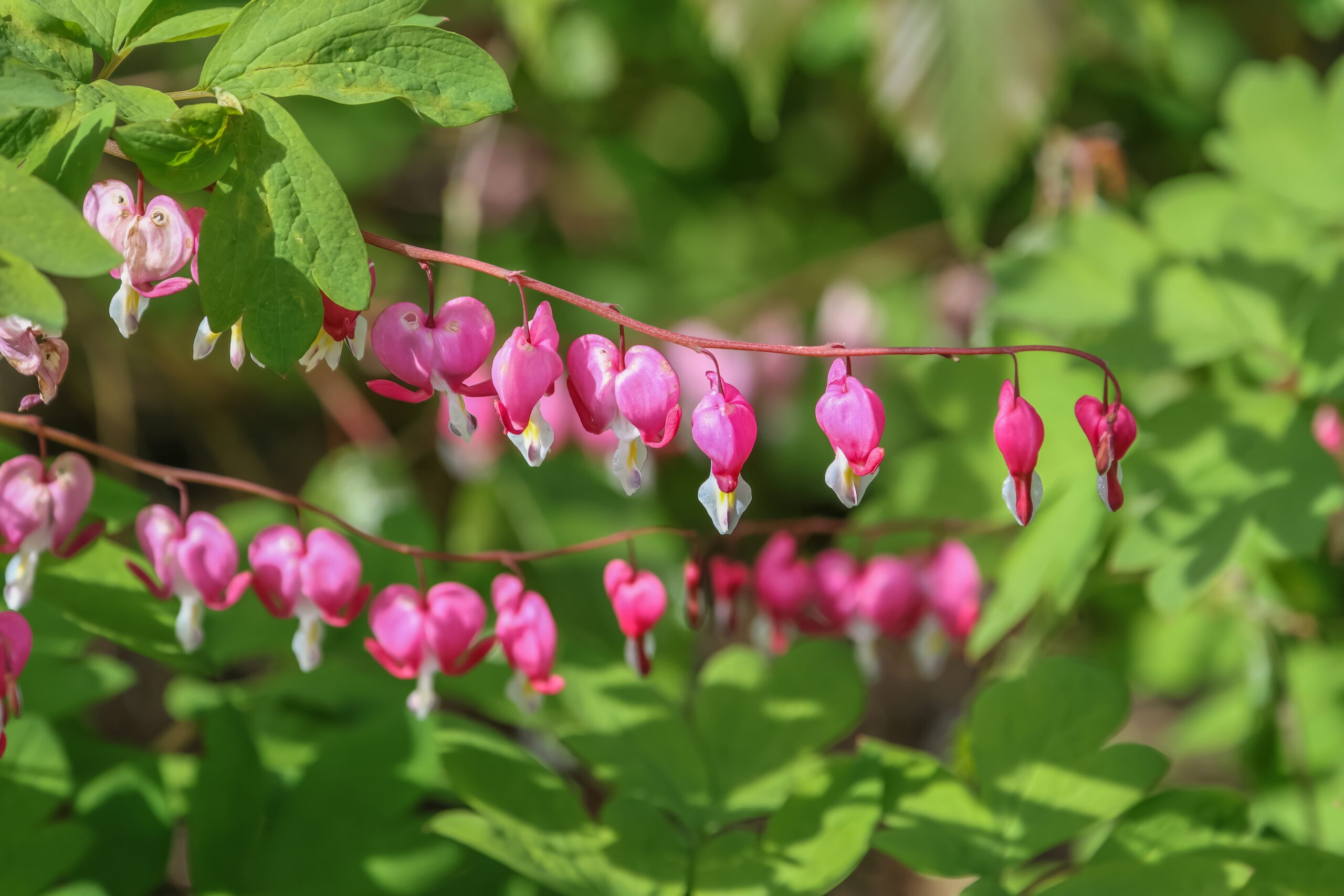
Bleeding Heart is a classic woodland plant with heart-shaped, pink flowers that dangle from arching stems. It blooms in spring and thrives in moist, shaded areas. The plant prefers rich, well-drained soil and partial to full shade. Bleeding Heart adds a romantic, delicate touch to shaded garden spaces.
Jack-in-the-Pulpit
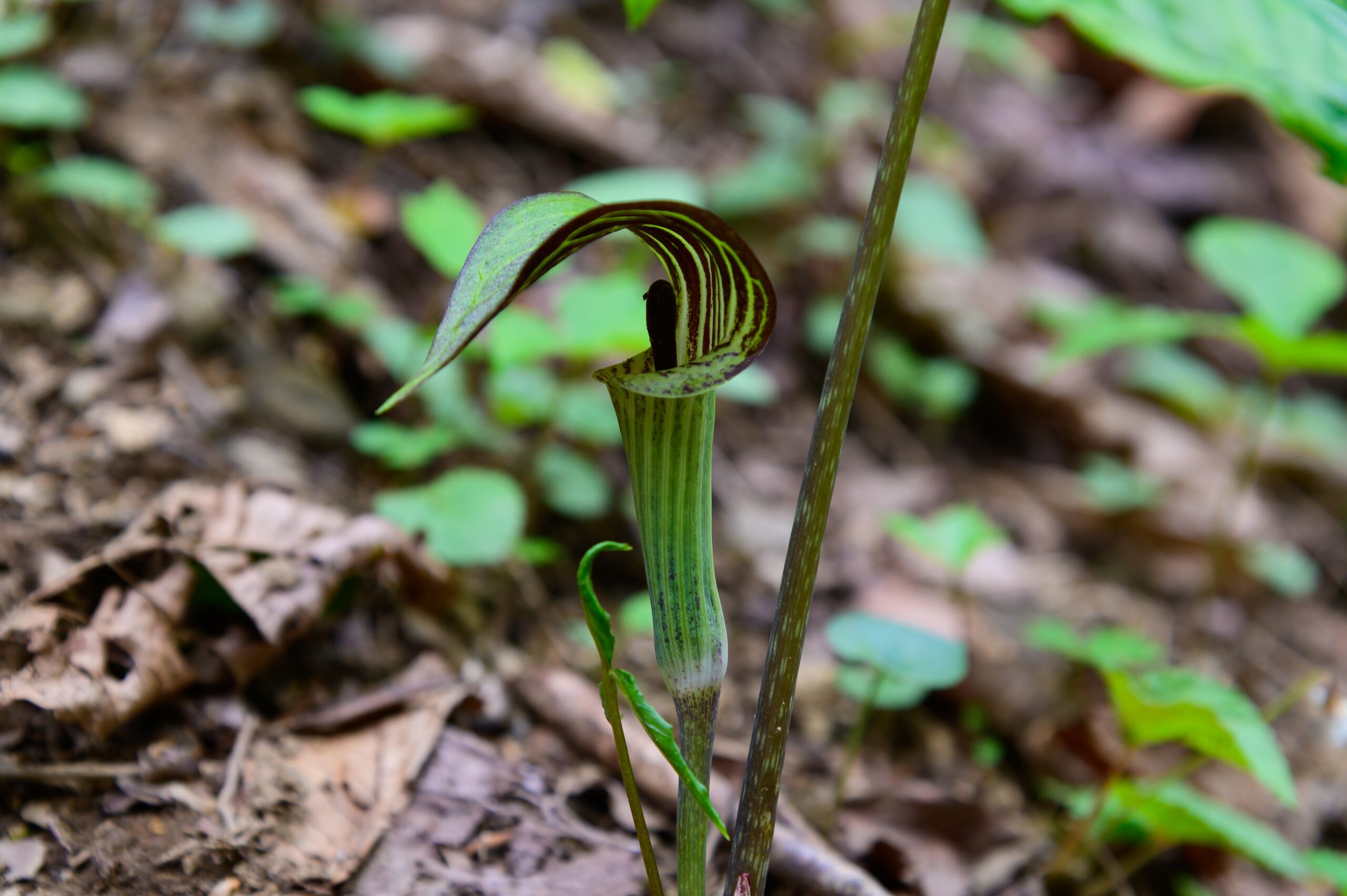
Jack-in-the-Pulpit is a distinctive woodland plant with an unusual flower structure. The plant features a hooded spathe that encloses a spike, known as the “Jack.” It thrives in moist, well-drained soil and prefers deep shade to partial shade. This plant produces vibrant red berries in the fall, adding seasonal interest. It is a hardy choice for woodland gardens, tolerant of various soil types.
Bunchberry
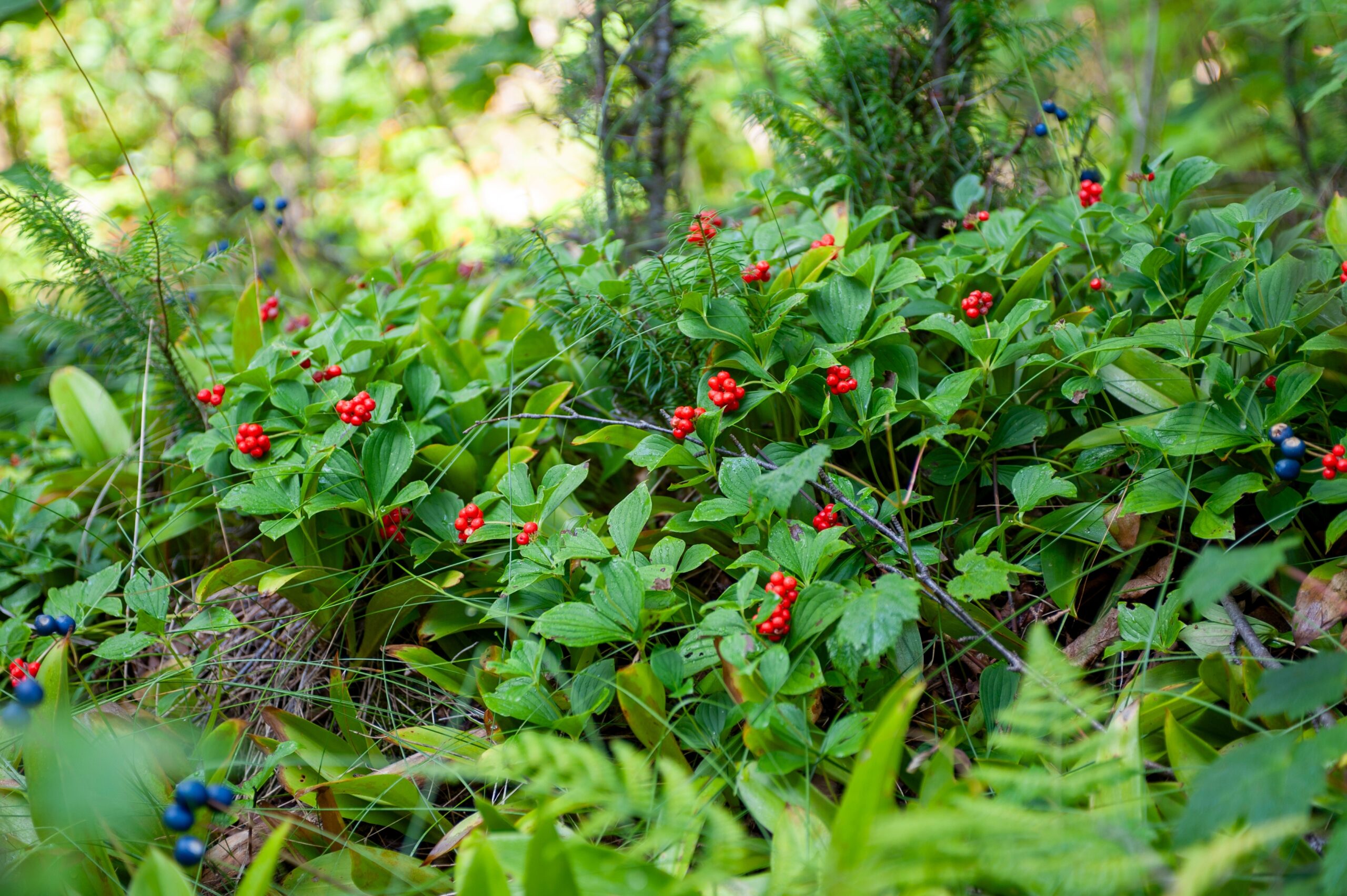
Bunchberry is a ground cover that produces bright white flowers in spring. The plant later forms clusters of red berries, which stand out in shady environments. It thrives in moist, acidic soil and prefers full to partial shade. Bunchberry spreads slowly, creating a low-growing carpet of green that adds texture to shaded garden spaces. Its attractive leaves and berries make it a popular choice for woodland areas.
Wild Ginger
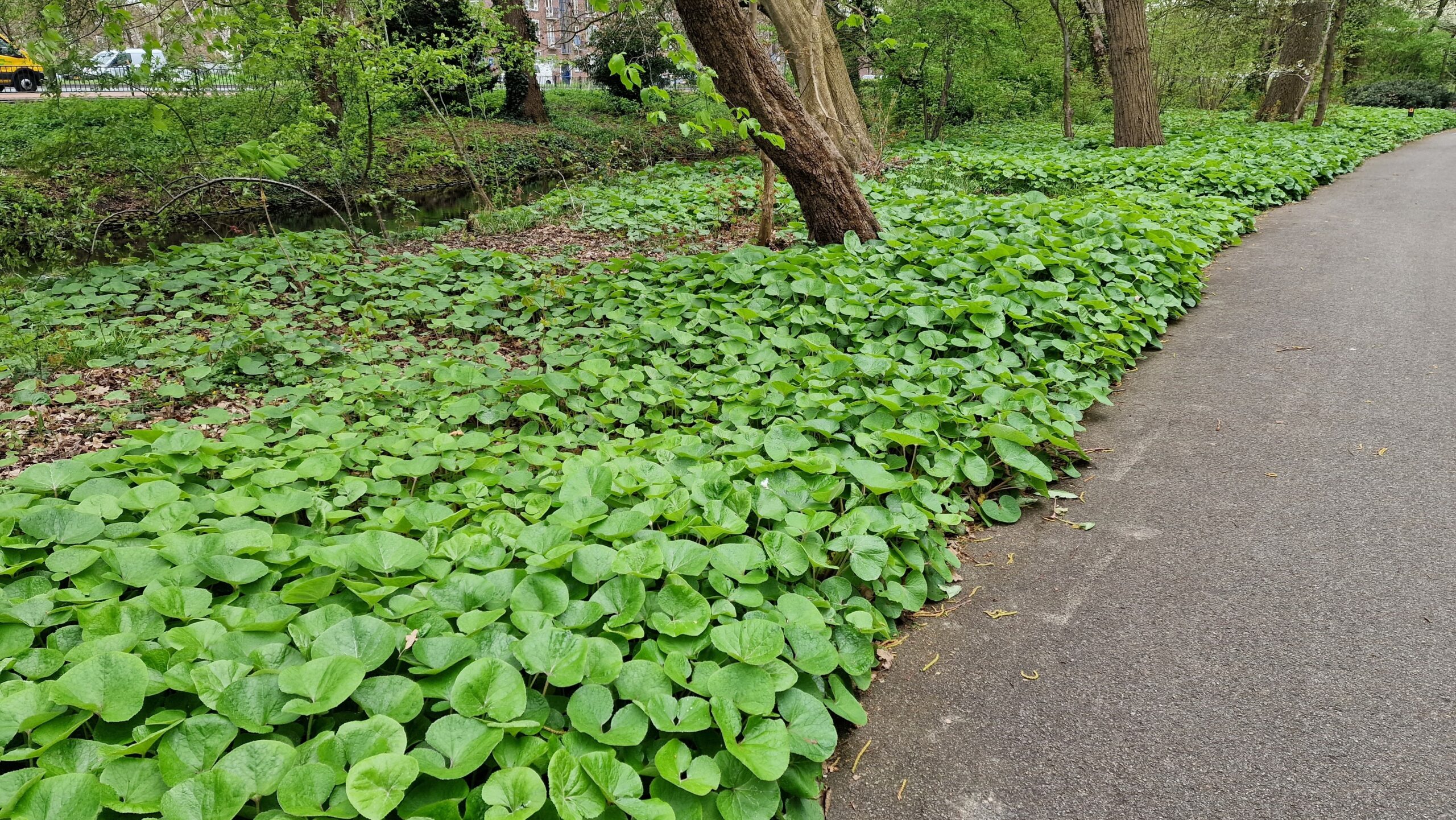
Wild Ginger is a low-growing plant with heart-shaped, deep green leaves. It produces small, hidden brownish-purple flowers near the ground. Wild Ginger thrives in moist, well-drained soil and prefers full to partial shade. Its thick, spreading roots help control erosion in shaded areas. This plant creates a lush green carpet in woodland settings, adding rich texture to garden beds.
Mayapple
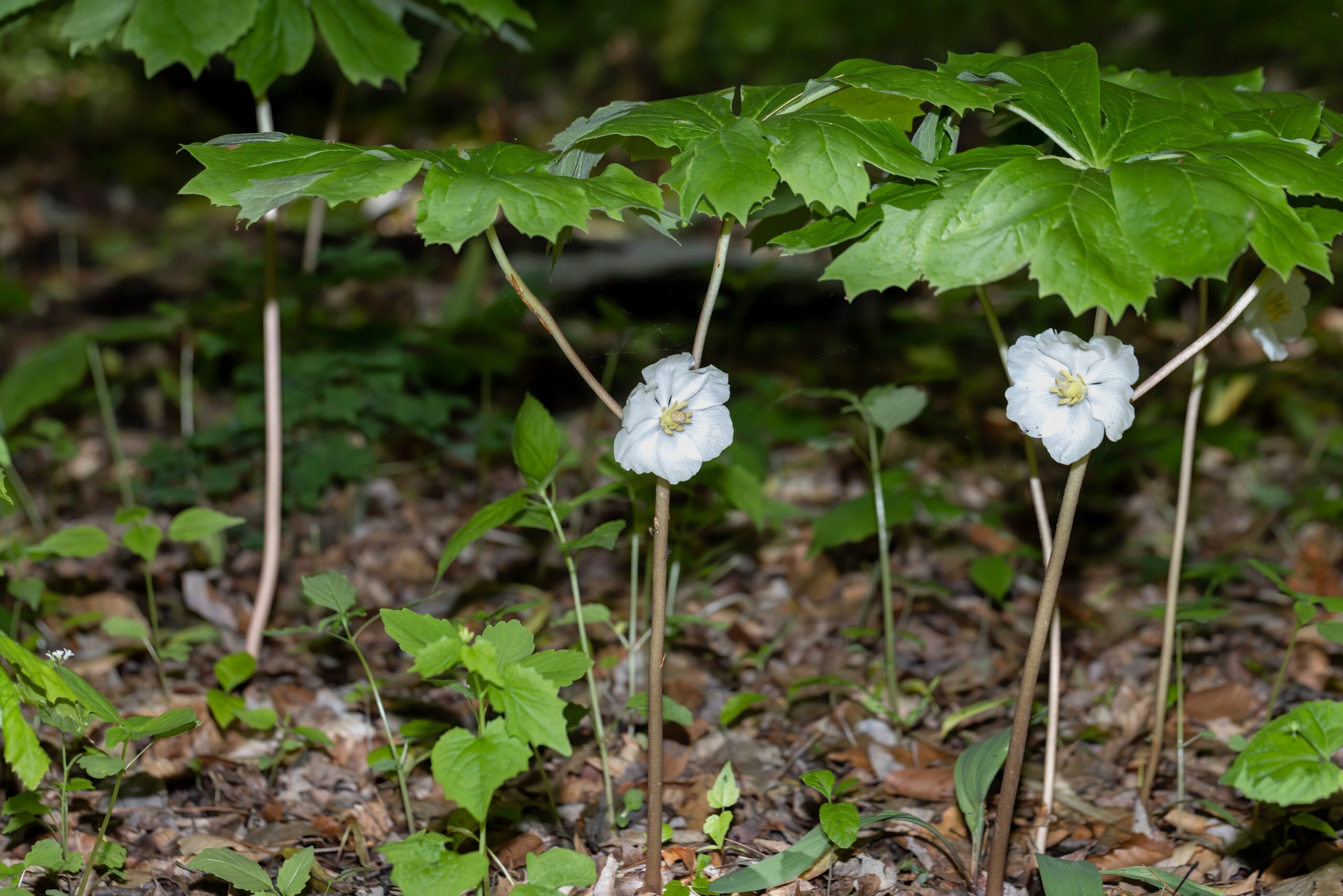
Mayapple is a unique woodland plant with large, umbrella-like leaves. In spring, it produces a single white flower, which eventually turns into an edible fruit. Mayapple prefers moist, well-drained soil and thrives in deep shade. This plant spreads via rhizomes, forming colonies that can cover large areas. It is perfect for naturalizing in woodland gardens.
Blue Cohosh
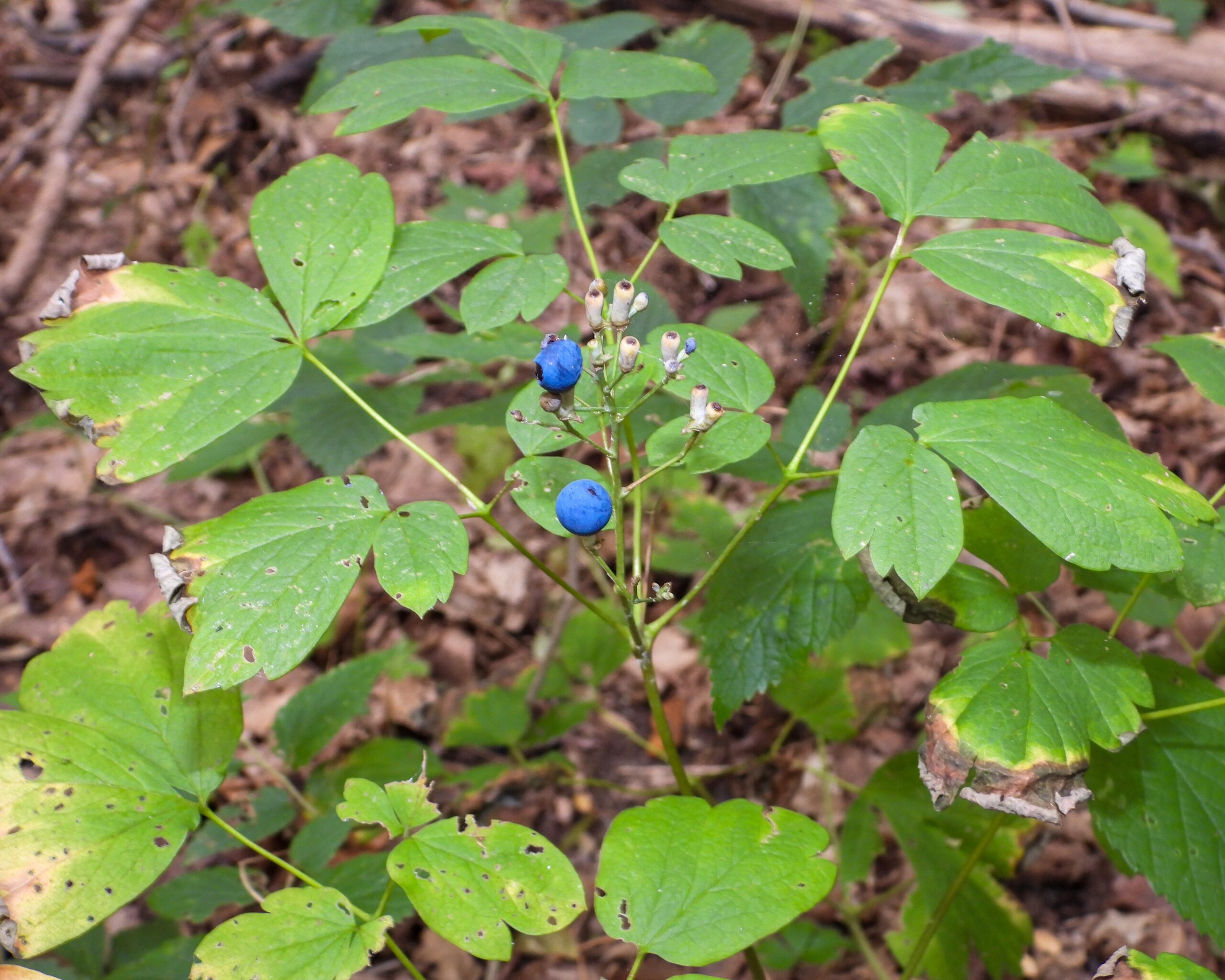
Blue Cohosh is a tall, herbaceous plant that adds height to shaded areas. It produces small, yellow-green flowers in spring, followed by blue berries in fall. Blue Cohosh thrives in rich, moist soil and prefers deep shade to partial shade. Its bluish-green foliage provides visual interest throughout the growing season. This plant is ideal for shady woodland borders.
Toad Lily
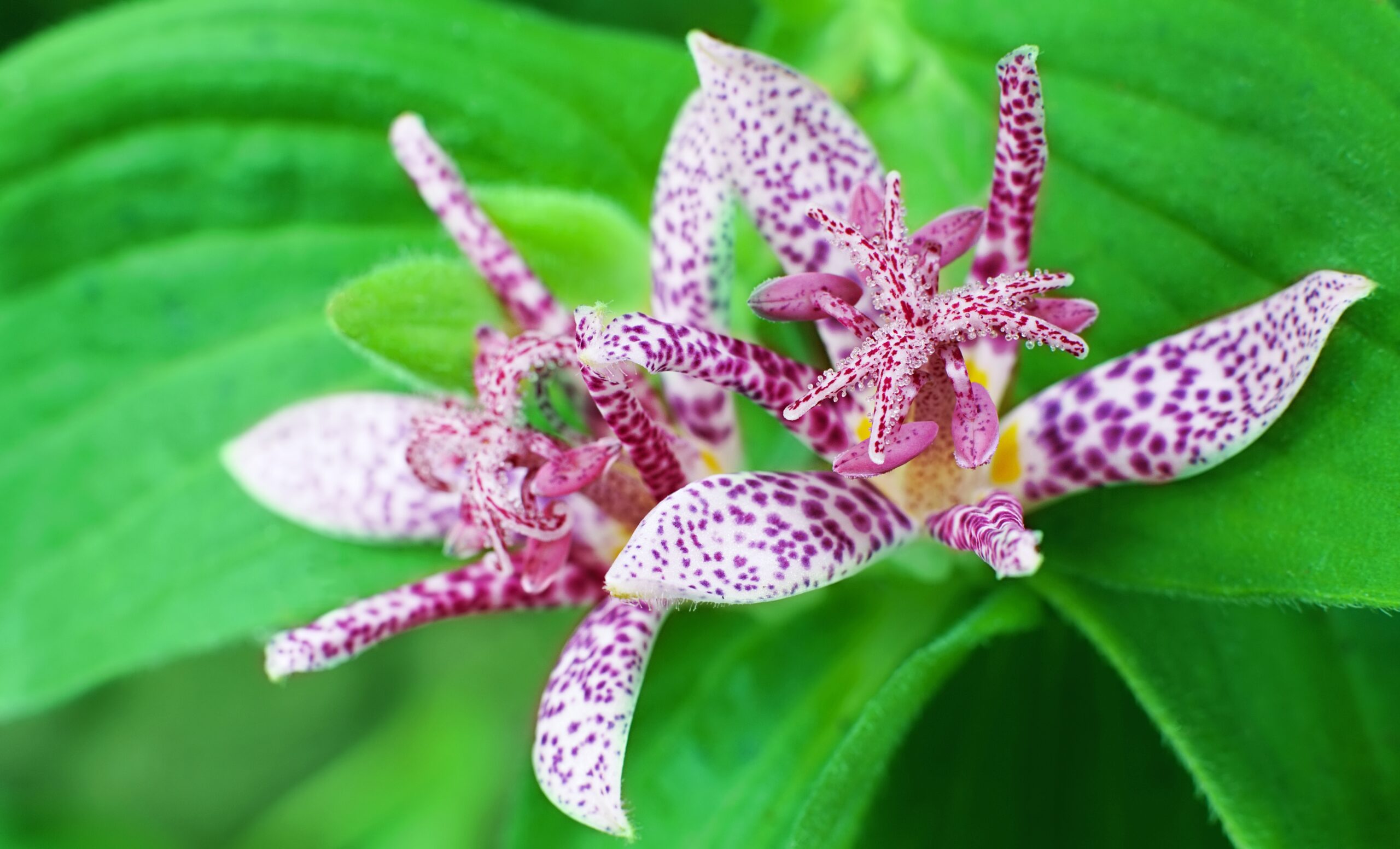
Toad Lily stands out with its spotted, orchid-like flowers that bloom in late summer to fall. It prefers moist, well-drained soil and thrives in partial to full shade. The flowers come in shades of purple, white, and blue, adding a pop of color to shaded areas. Toad Lily grows well in woodland gardens, providing late-season blooms when many other plants have finished flowering.
Goat’s Beard
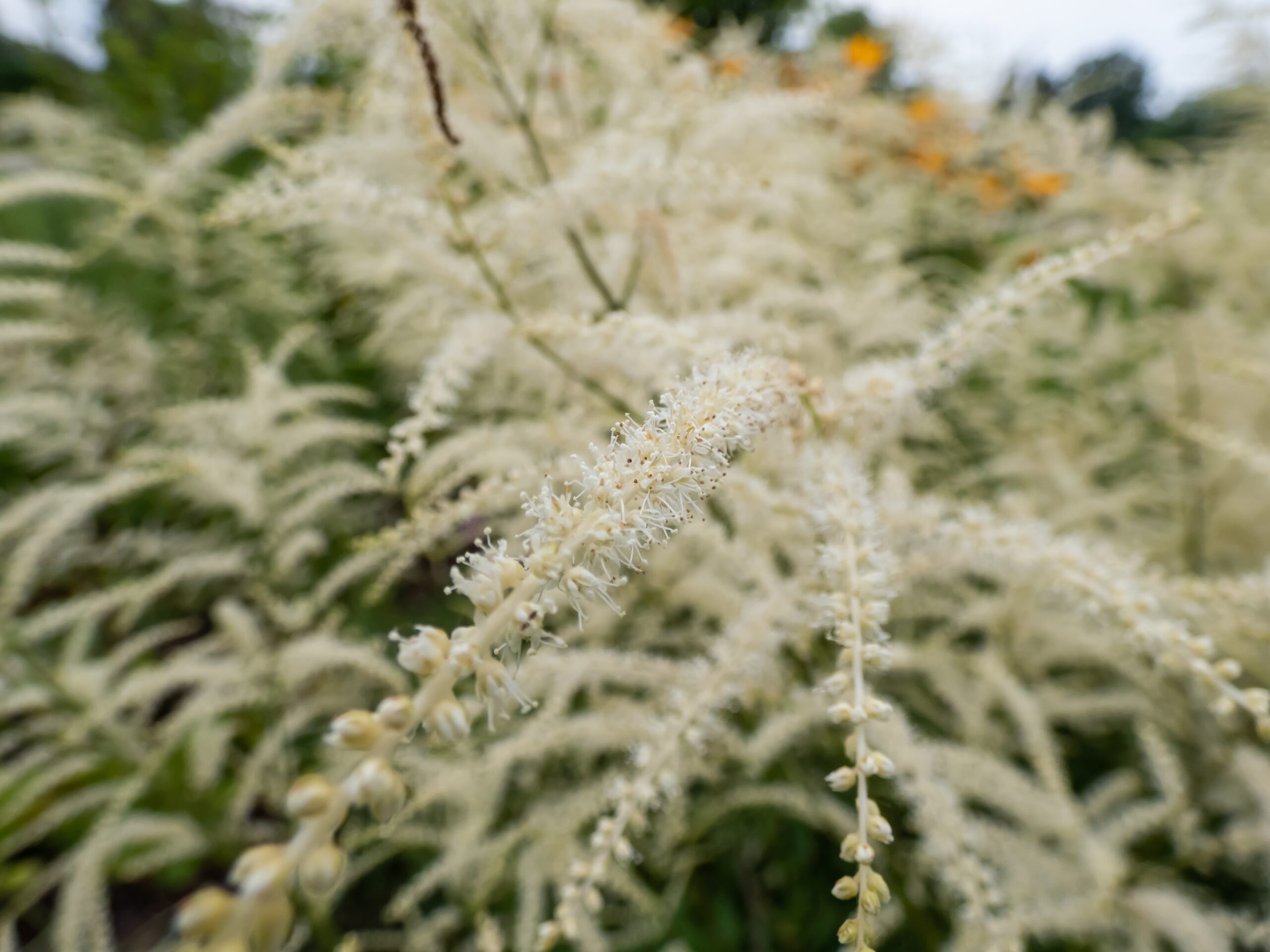
Goat’s Beard is a tall, graceful plant with large, feathery white blooms. It thrives in moist, rich soil and does well in full to partial shade. This perennial blooms in early summer, adding height and texture to shaded garden areas. Its feathery plumes can grow up to 6 feet tall, making it a striking addition to woodland gardens. Goat’s Beard also serves as a backdrop for smaller shade-loving plants.
Trillium
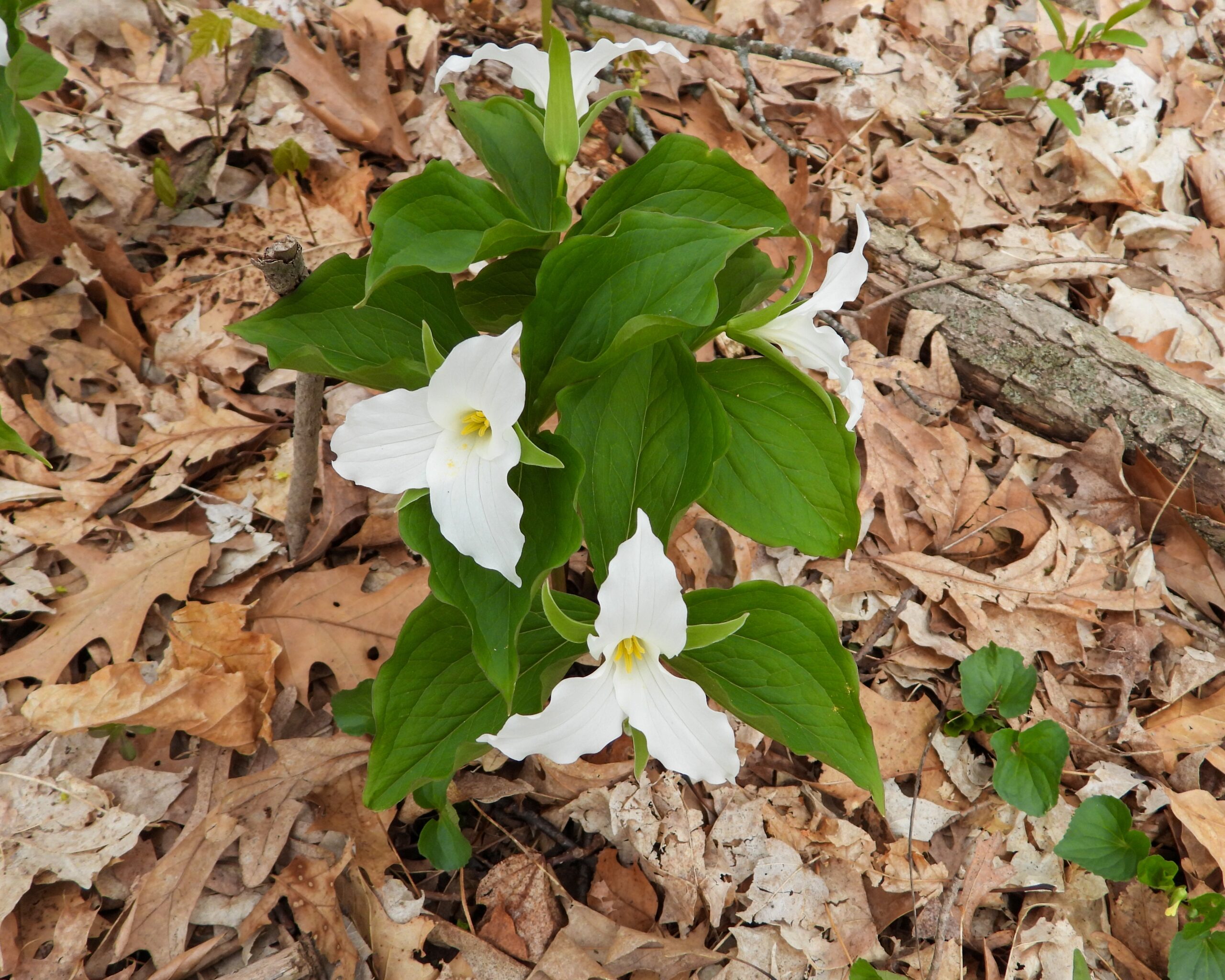
Trillium is a spring-blooming plant known for its three-petaled flowers. The blooms come in shades of white, pink, or red and sit atop a trio of large leaves. Trillium prefers moist, well-drained soil and thrives in deep shade. This plant adds early-season color to forest floors and naturalizes well in woodland settings. Once established, Trillium can spread, forming small colonies over time.
Spikenard
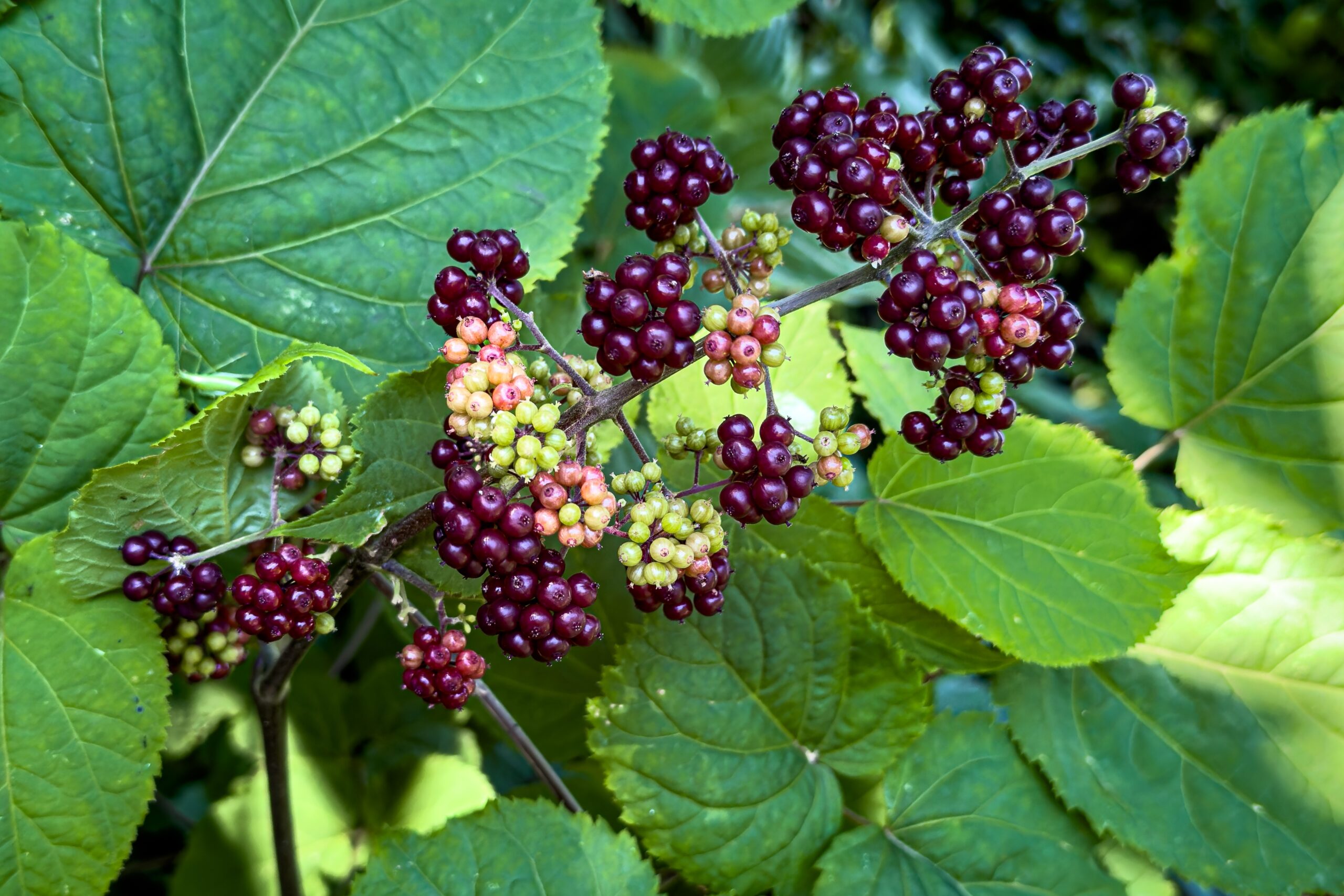
Spikenard is a tall, herbaceous plant with clusters of small white flowers. It blooms in late summer and prefers moist, shaded environments. This plant thrives in rich, loamy soil and grows up to 5 feet tall. Spikenard also produces small, dark berries that add interest after the blooms fade. Its bold foliage and late-season blooms make it a standout in low-light garden areas.
Bloodroot
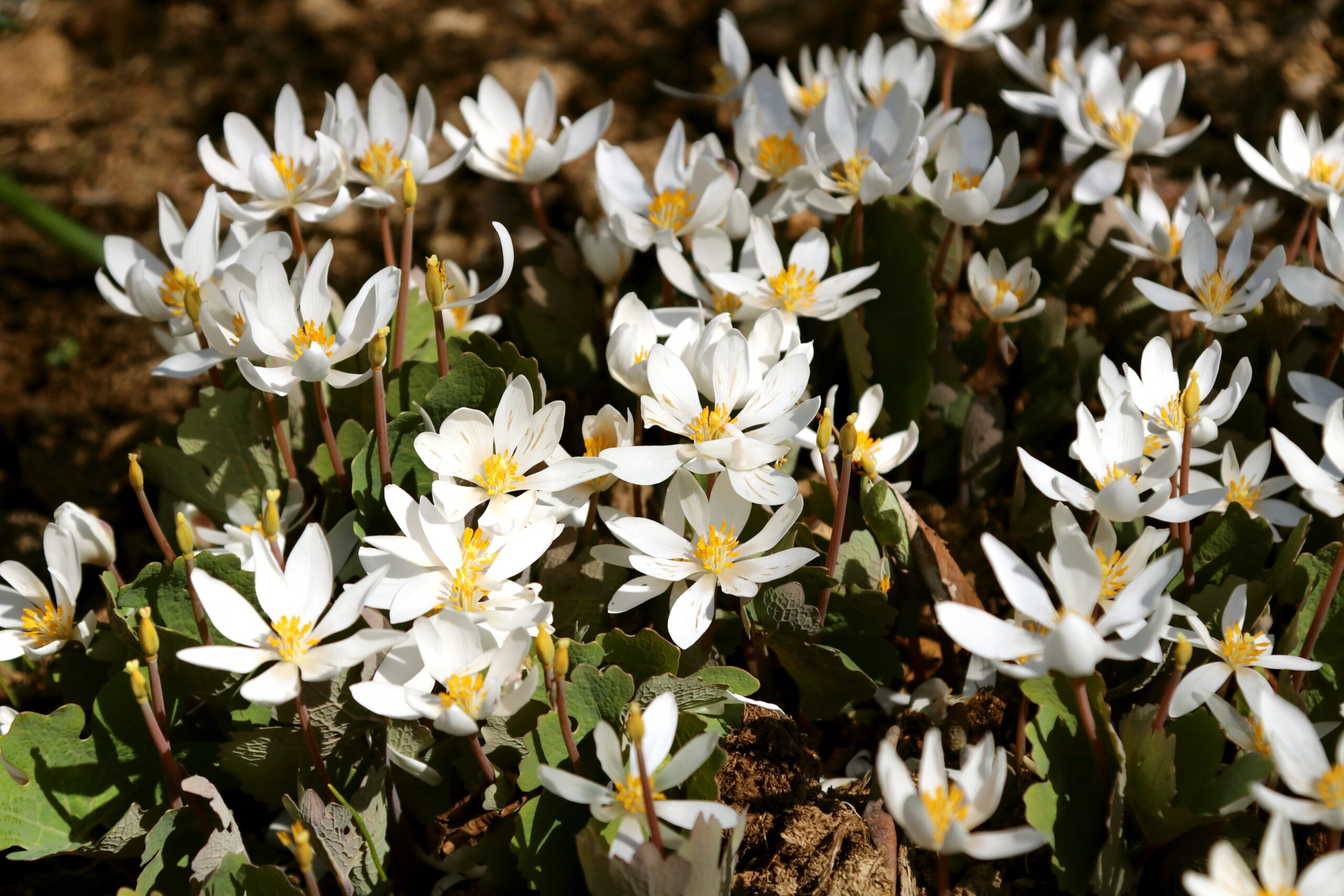
Bloodroot is a low-growing spring perennial with bright white flowers. Its blooms appear early, often before the leaves fully develop. This plant thrives in moist, well-drained soil and does best in deep shade. Bloodroot’s unique feature is its reddish sap, which was once used for dye. It spreads slowly by rhizomes, forming small clusters over time.
Black Cohosh
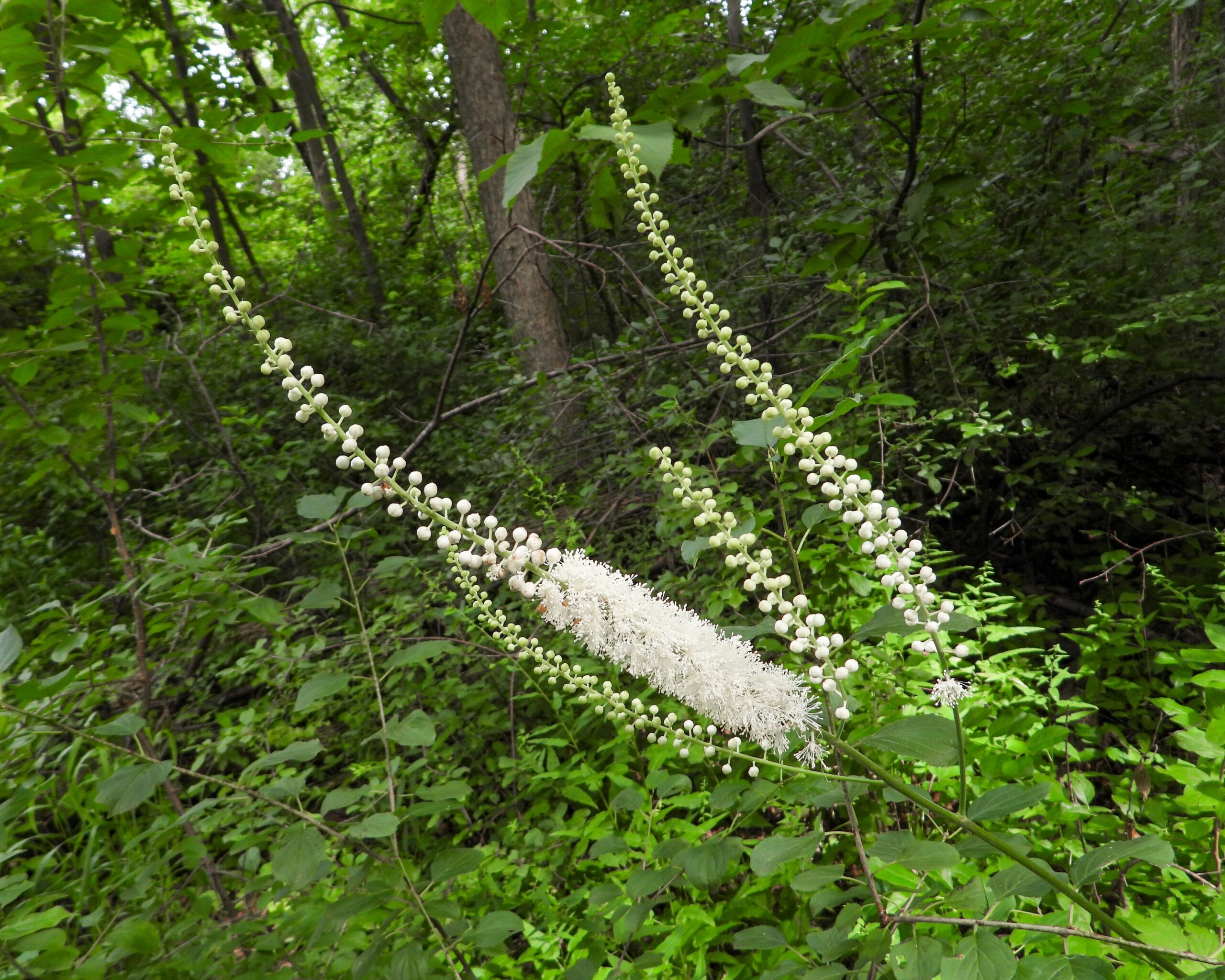
Black Cohosh is a tall woodland plant with striking white flower spikes. It thrives in rich, moist soil and prefers full to partial shade. This perennial blooms in mid-summer, adding height and structure to shaded garden spaces. The flowers have a strong fragrance, attracting pollinators. Black Cohosh is often used in naturalistic plantings due to its bold presence.
Wild Columbine
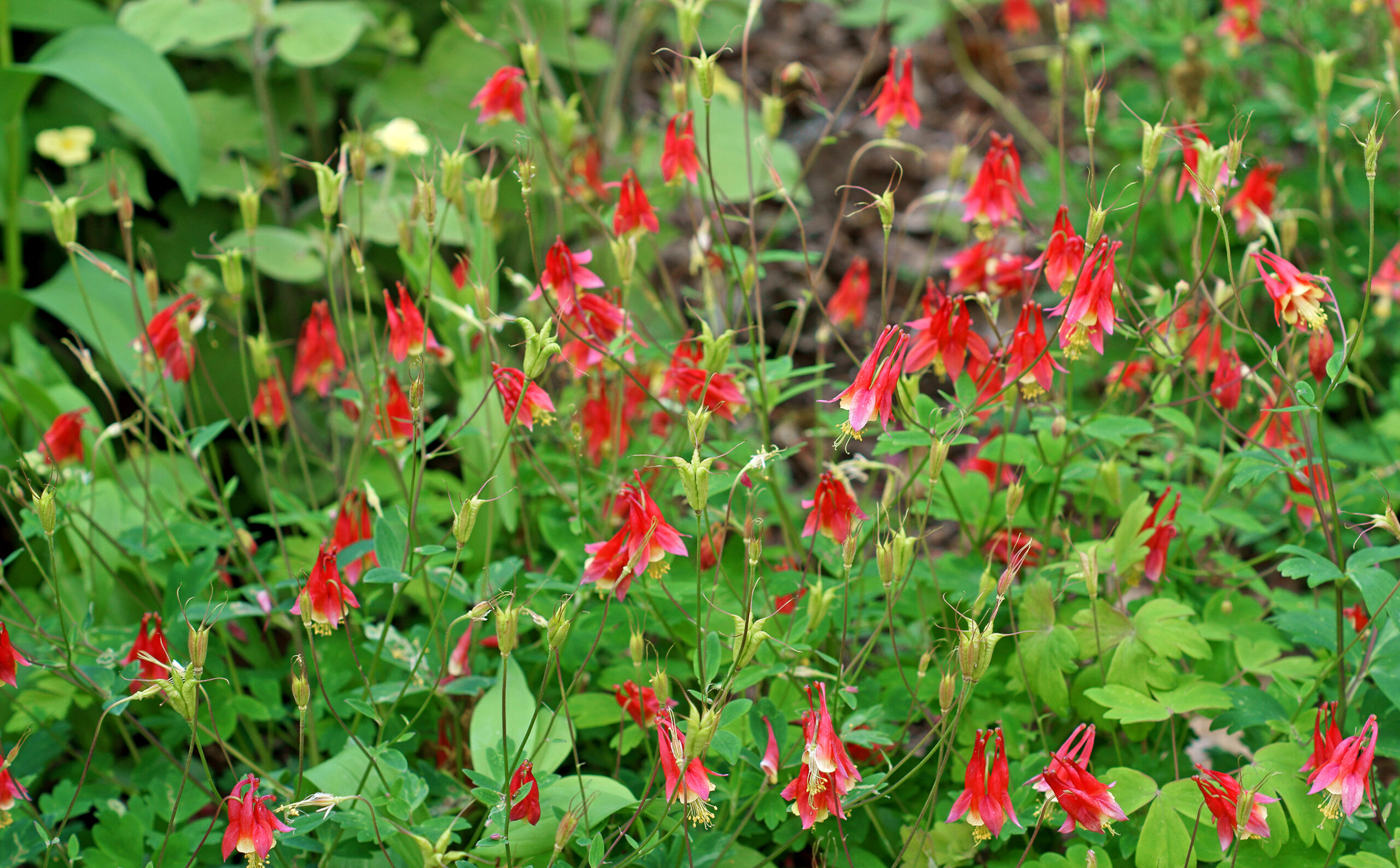
Wild Columbine is a delicate woodland plant with nodding red and yellow flowers. It blooms in late spring and thrives in full to partial shade. This plant prefers well-drained soil and tolerates drier conditions than many shade-loving species. Wild Columbine’s unique flowers attract hummingbirds and other pollinators, adding both beauty and wildlife to shaded gardens.
This article originally appeared on Rarest.org.
More from Rarest.org
17 Coveted Fine China Brands for Elegant Dining
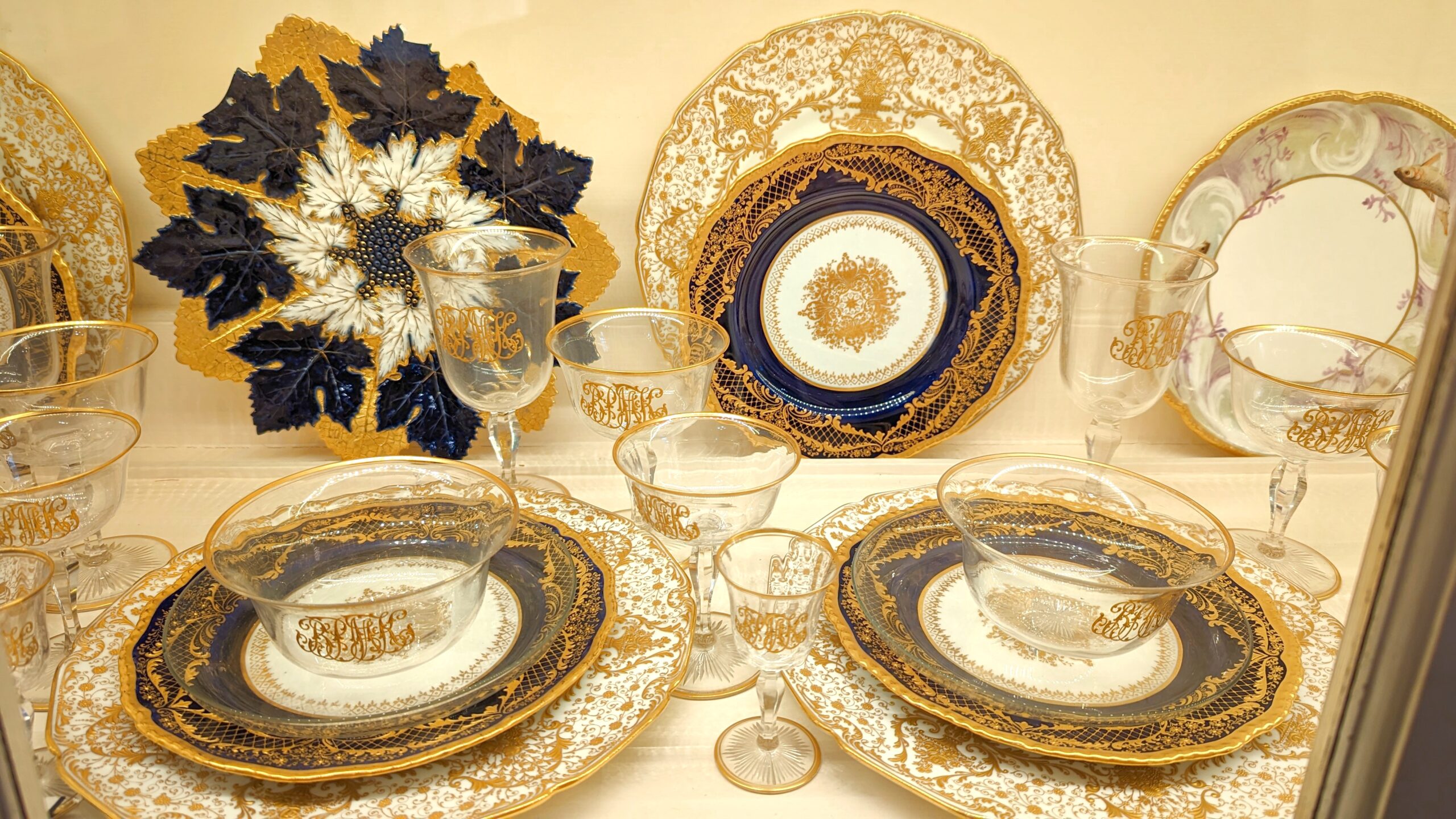
Fine china is more than just tableware; it’s a symbol of elegance and timeless beauty. When it comes to dining, choosing the right brand can elevate any occasion. Read More.
13 Coveted Antique Glassware That Fetches Top Dollar
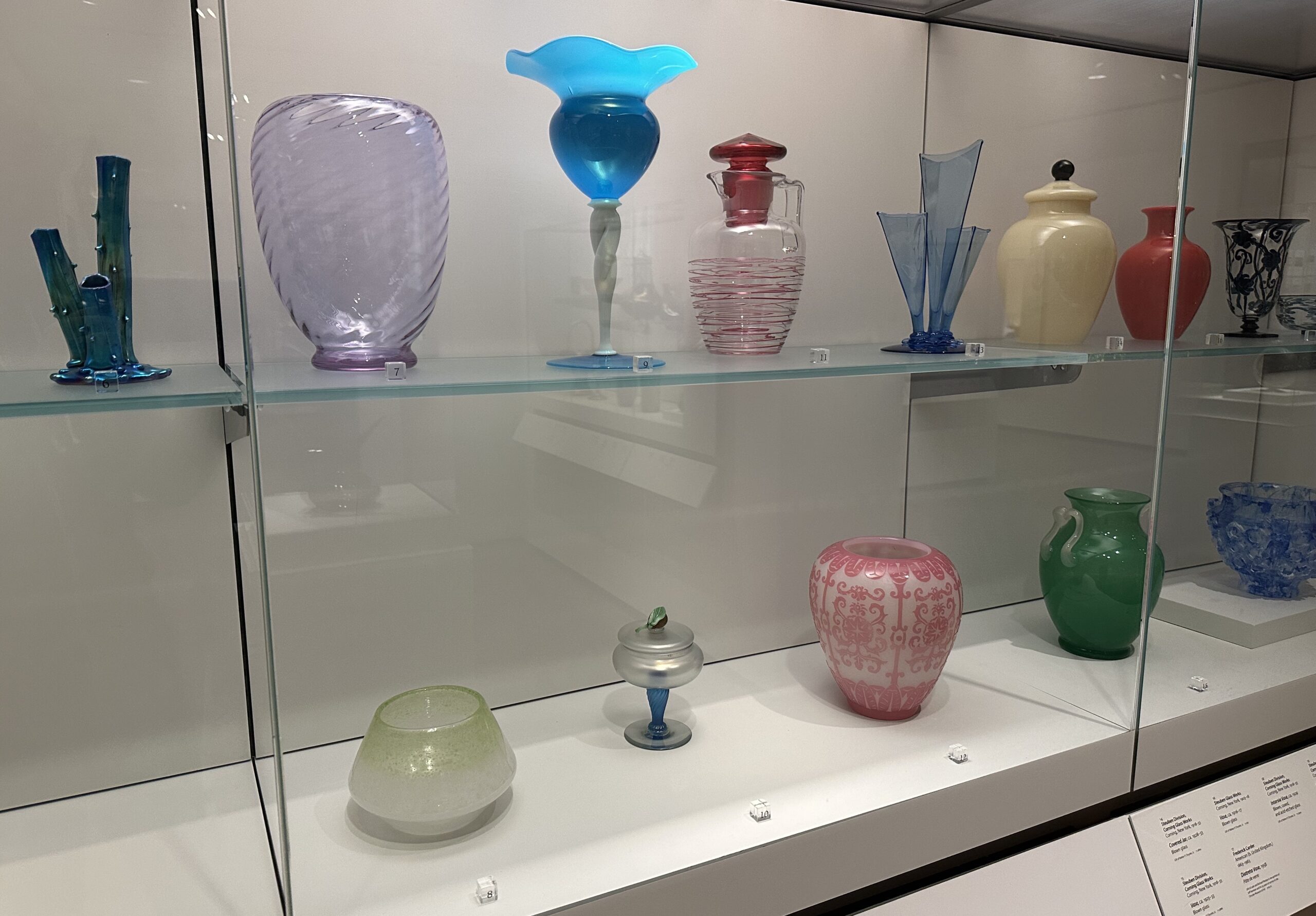
Tiffany Favrile Glass is renowned for its iridescent finish. Each piece is hand-blown, showcasing vibrant colors that shift in the light. Read More.
20 Endangered Animals Pushed to the Brink by Habitat Loss
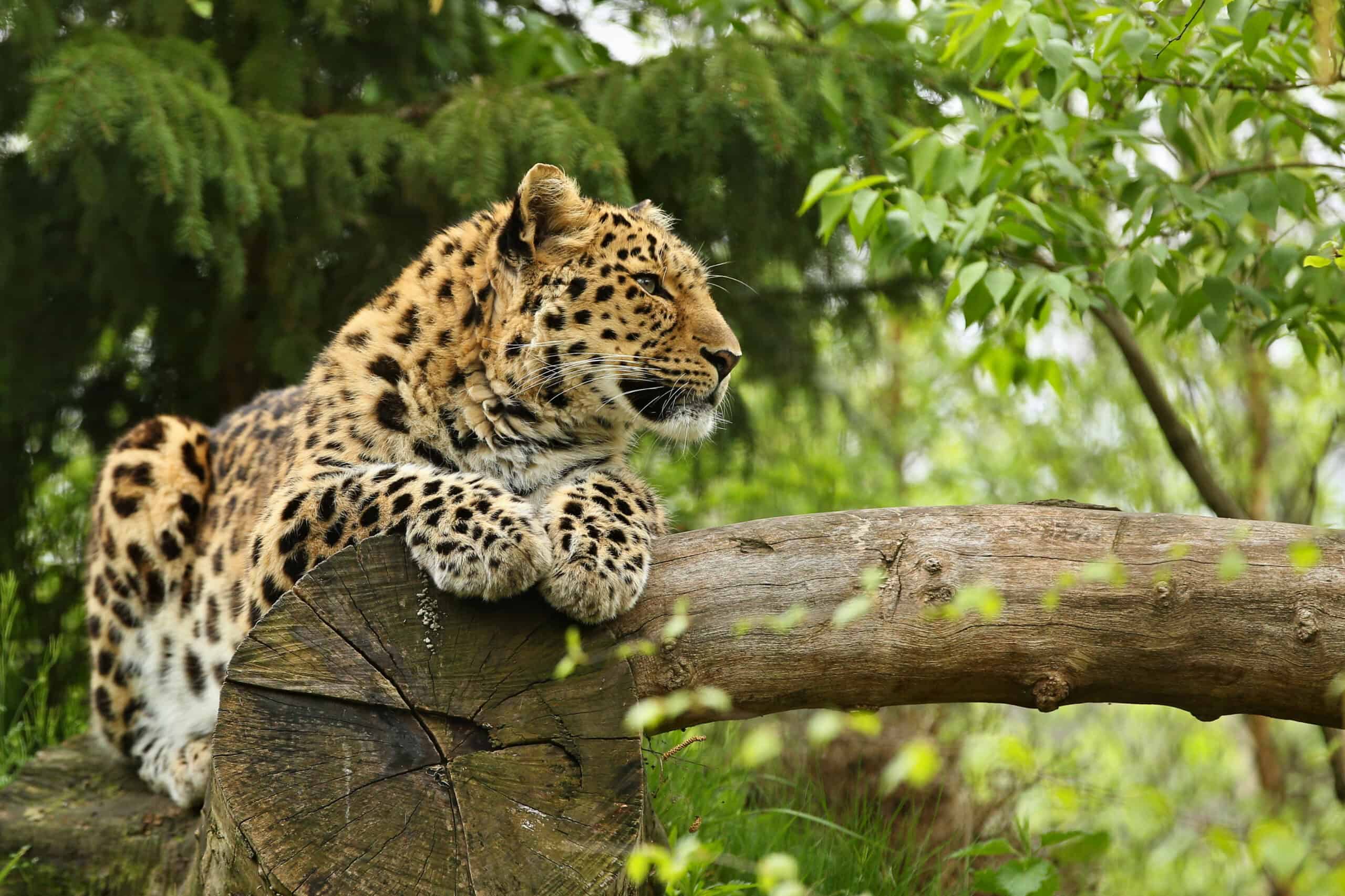
Many species are being pushed to the edge of extinction, with habitat loss playing a critical role in their decline. Read More.
